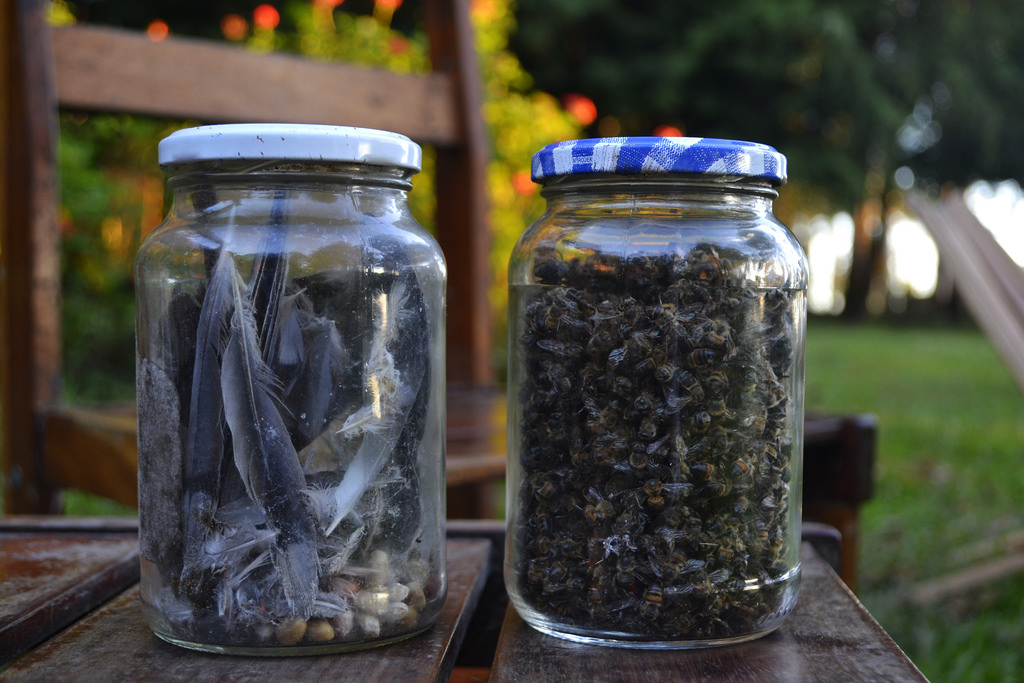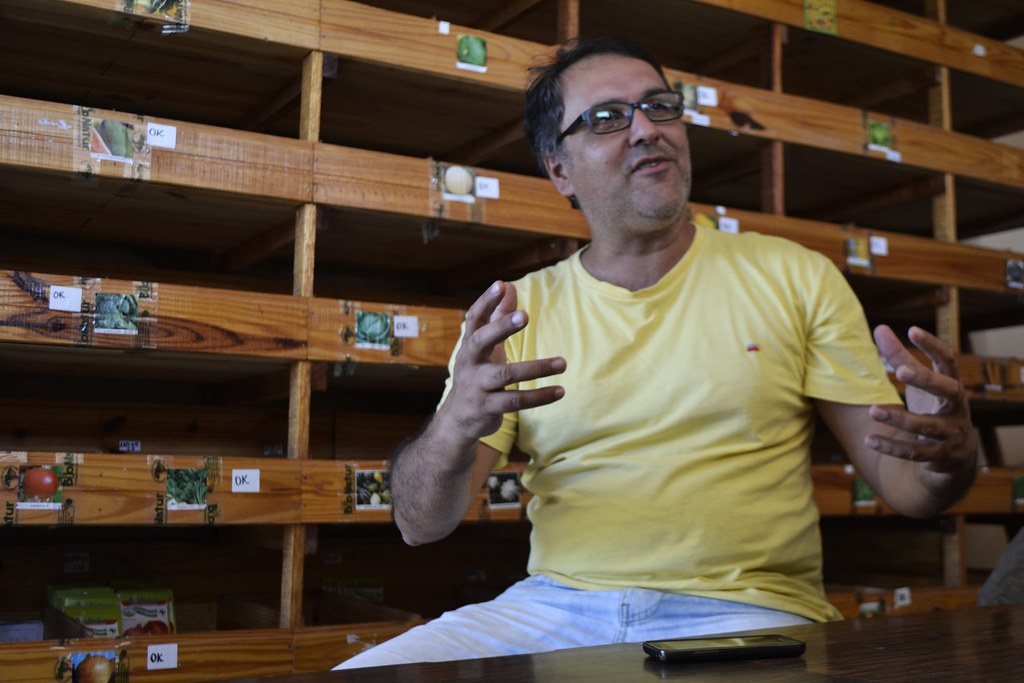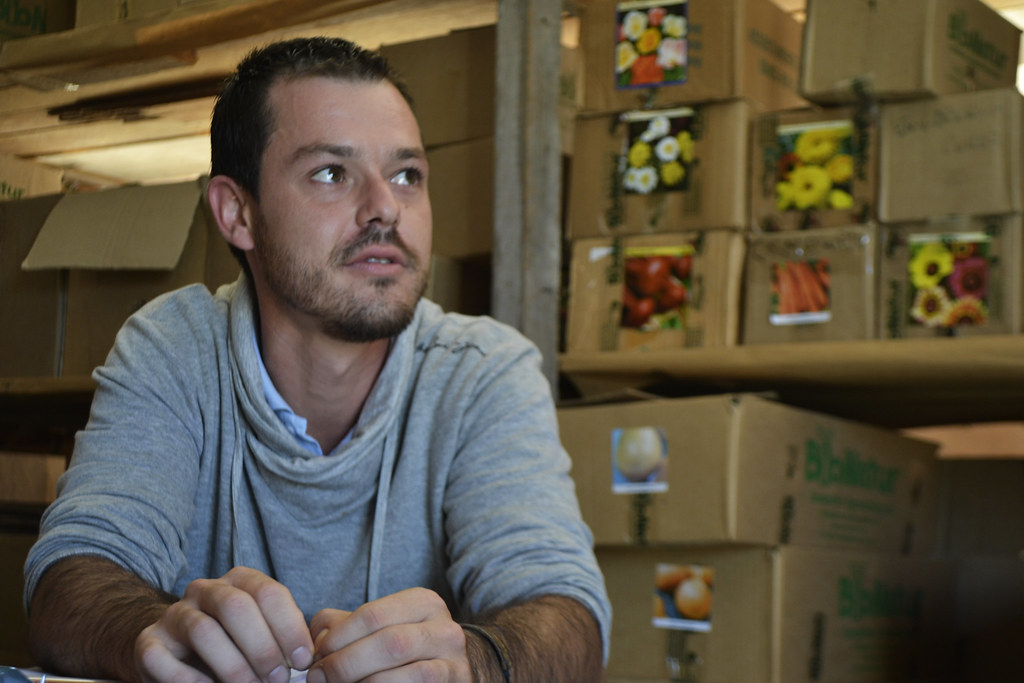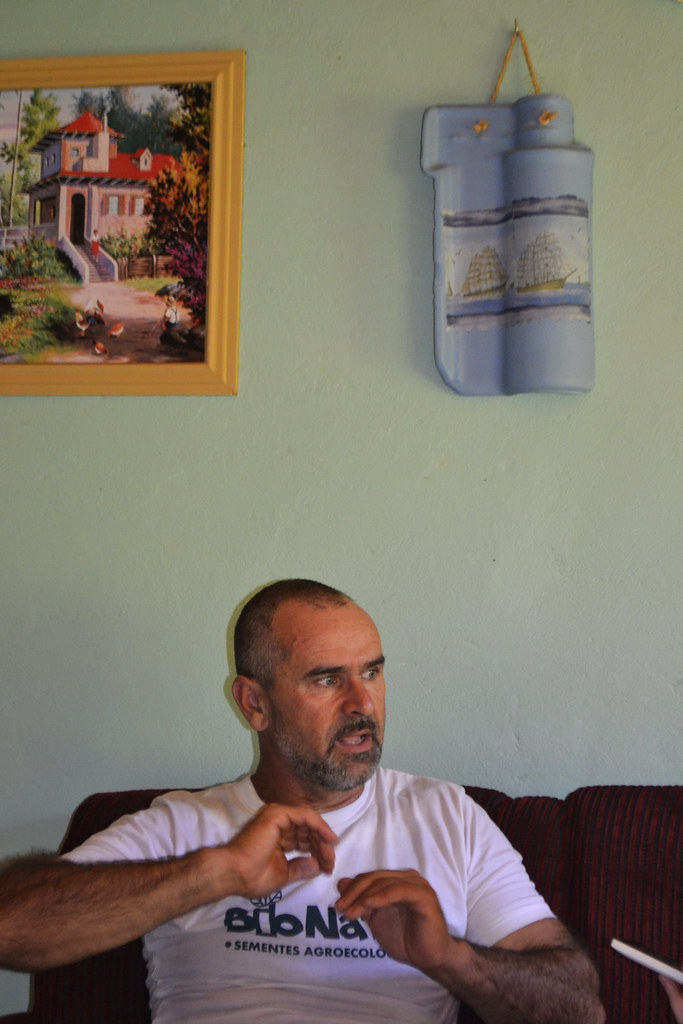
Alert: death of bees can get out of control
Lack of supervision of the competent bodies of the origin, the handling, the storage of pesticides and the final destination of packaging are problems faced by beekeepers.
2the reporting of the special series.
By Catiana de Medeiros
Collaboration: Leandro Molina
28 April 2016 14h32

In the first report of the series you heard about the death of bees in the region of the Rio Grande do Sul Campaign, and the serious situation of land reform settlers who lost entire hives due to the excessive use of pesticides in areas close to the settlements (read on here). See the second article in the series “There's poison in your honey”.
“There is no other logical explanation than contamination by pesticides”
Agricultural engineers Márcio Morales and Maurício Boni, of the Bionatur agroecological seed network, based in Candiota, closely monitor the situation of families that lost hives in the region of the Rio Grande do Sul Campaign. According to them, the problem occurs with several bee producers and, even if there is no report to prove it, there is strong evidence that the deaths are directly related to GM soy and the use of pesticides.
“There is no knowledge of disease or any other type of problem that is occurring with swarms in the state, except the production of soybeans in the vicinity of settlements in the region. It brings with it not only Glyphosate, but also fungicides and insecticides that are often banned in Brazil and smuggled from Uruguay. What concerns us is on what scale will these deaths continue to occur. It comes in an order that, shortly, can multiply and be out of control ”, Morales alert.

According to Boni, the main symptom of poison contamination is the sudden death of a large number of bees, in the same way that occurred with the hives of the settler João Carlos Camargo, in Hulha Negra. “There is no disease or pest attack that will cause such sudden damage. There is no other logical explanation than contamination by pesticides ”, frieze.
Social damage, productive and economical
Engineers explain that the death of bees, as a result of the abusive use of poison in GM soybean crops, has generated social damage, productive and economical to the settlers of the region, mainly for those who opted for the production of healthy foods.
According to Boni, bees are fundamental in the pollination process of plants, and help ensure food production, about everything, of fruits and grains.
“The levels of production and diversity are compromised as there are no bees. Today, many settlers are giving up organic production because they are surrounded by pesticides and, consequently, for failing to maintain clean production on their lots by aerial spraying in the neighborhood. The conventional model of production induces them to enter this system, upset, and who wants to resist does not find legal support or alternatives. So, honey production ends up being contaminated by pesticides and making organic production unfeasible ”, says.
As a result of the effects that pesticides and GM soy have caused in the Campaign, engineers also cite soil degradation, the suppression of native pastures and the decrease in the income of settled families, once it reaches, indiscriminately, other types of crops. According to the settler in Hulha Negra, Elio Francisco Look, over the past three years it has been increasingly difficult to earn income from beekeeping and to maintain its production, three hectares, of creole corn and agro-ecological foods.

“I have been planting Creole corn for over 15 years, but it’s very complicated to keep the seed. Last year, part of my crop was affected by GM, and I also lost pumpkin plantations, melon and other foods. What will guarantee my corn production this year is another part of six thousand square meters, this if it is also not contaminated ”, declares.
For your José, the loss of hives in 2014 is 2015 resulted in the halt of his dream of expanding honey production, and lower quality of life. Plans, how to travel with family, were in second order. “With the honey money, I intended to make some investments to improve production, I also wanted to buy some things for the house, pay some bills and travel. I did not make it", the Mint.
The economic problem also affects Bionatur, that involves the work of 50 families settled in the region, of a total of 170 between the states of Minas Gerais and RS, in the production of agroecological seeds. According to the president of the cooperative, Alcemar Adílo Inhaia, the offensive of transgenic soy and the use of pesticides has hampered clean production and, today, one of the network's biggest concerns revolves around maintaining crops and avoiding significant losses.
“We face the attack of caterpillars that migrate from GM crops to our production areas, in addition to fungi and diseases that did not exist before. Agroecological production is almost impossible, which has a very strong impact on the cooperative from an economic point of view. We had a plan to expand our production spaces, but the farmers had serious frustrations and we stopped selling because we were unable to produce. Last year, our estimate was to reach nine tons of vegetable seeds, we didn't reach four. We had more than R $ 2 millions in losses. Today, we could have at least 250 farmers working with the cooperative, but due to the barriers many ended up giving up ”, explains.
Carlos Alberto Maciel, Emater technician in Bagé, entity that also provides assistance to honey producing families, explains that partnered soy plantations have become common in the region and, often, end up “empowering” some people because they have machinery and access to more resources. “Many have the family tradition of planting soybeans and feel empowered towards other families for being able to pay to plant soybeans in the area of others. This is, for sure, a social problem that this monoculture ends up generating ”, emphasizes.
Lack of supervision and public policies
One of the main complaints of settlers refers to the neglect of the competent bodies to help them solve problems. Mr. João says that he denounced the killing of bees to the Public Ministry, asked for help from the Military Brigade and the Environmental Patrol, but that nothing was done. “I had health problems and I was very shaken. The next day I asked the competent bodies for help, so they could come and see what was going on. But until today I have not received an answer ”, explains João.

Amarildo Zanovello, seated in Candiota, also draws attention to the inefficiency and inefficiency of public agencies in relation to the problems faced by beekeepers. “I left the bees dead two months in the freezer, awaiting return from Ibama and the Secretariat of the Environment, who were to recommend a laboratory to analyze the type of product that is causing these deaths. To date, I have had no return. We have no protection or respect, because agribusiness has no limits with the production that is in its surroundings, let alone with people who have another production system without poison ”, full.
For engineer Morales, the lack of inspection by the competent bodies over the origin, the handling, the storage of pesticides and the final destination given to their packaging is one of the main problems faced by beekeepers in the region. To overcome part of these obstacles, he defends the creation of public policies to encourage the production of organic honey.
“You need to have processing units and channels for commercialization. Most soy production in Brazil is financed with public money and insured against any weather. But for honey production there is no incentive or insurance. Peasants need public policies that guarantee them the same rights that agribusiness has. We want nothing more than that, equal rights only ”, argues.
According to engineer Boni, another option would be to create areas free from the use of pesticides and transgenics within the settlements, as it exists in the Filhos de Sepé Settlement, in Viamão, in the Metropolitan Region of Porto Alegre.
“Honey production is more delicate than other agricultural production, because the bee flies a very long distance to capture pollen, and often in areas containing pesticides. The ideal would be to create territories that do not use poisons and prioritize the production of healthy food for farmers and the city, and not commodities and export products ”, points.
Source:
Page do MST : http://www.mst.org.br/2016/04/28/alerta-mortandade-de-abelhas-pode-ficar-sem-controle.html

Sorry, the comment form is closed at this time.